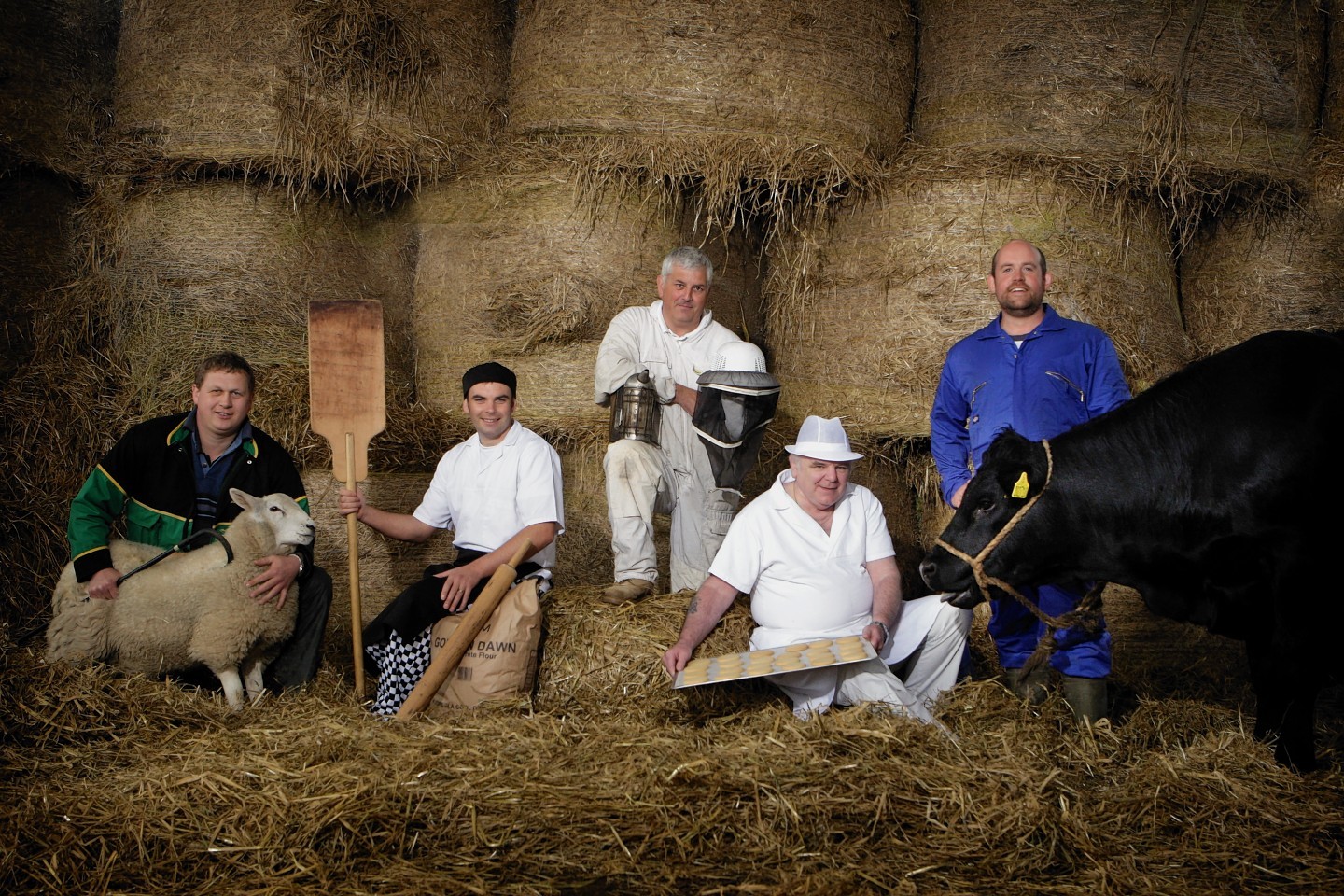The North Highland Mey Selections brand has gone from strength to strength in the past 10 years, paying out around £2million in bonus payments to farmers since their inception.
It is the premium retail and food service brand of the North Highland Initiative (NHI), which was launched by Prince Charles in 2005 to develop the Highland economy through food, drink and tourism.
Chairman David Whiteford, who has been in the role for just under five years, said Prince Charles set up NHI because of a great connection with the Castle of Mey in Caithness, which was owned by the late Queen Mother.
“He (Prince Charles) is a great supporter of sustainable farming in fragile areas,” said Mr Whiteford, who farms with his three brothers near Tain.
“His concept was to find a way to put a premium on products from these areas understanding that the cost of production was significantly higher. He also realised that the quality of the livestock is excellent but the farmers are disadvantaged because of the distance from the marketplace. He also saw the need for farmers and food producers to foster closer relationships with the consumer.”
He said a key supporter of the scheme was Sainsbury’s, which stocks North Highland beef and lamb in more than 60 of its stores.
“To help carcase balance Sainsbury’s also lists a range of Taste The Difference ready meals containing North Highland meat, which have increased in popularity since the horsemeat scandal,” added Mr Whiteford.
In addition, meat from the brand goes into pre-prepared meals for the recently relaunched Caledonian Sleeper with new operator Serco focusing in on Highland provenance for the bulk of its menu. Mey Selections meat is also available at various butchers and eateries throughout the UK.
At present around 170 cattle and 600 lambs are killed every week to produce meat for the scheme. They are sourced from around 120 farmers.
Cattle are slaughtered by ABP in Perth, while lambs go through Dunbia in Elgin.
To qualify for the Mey Selections brand, the stock must come from, or be finished, within a 150-mile radius of the Castle of Mey.
“Brand standards require the farms to be QMS-assured, while bull dairy crosses don’t qualify,” said Mr Whiteford.
On future plans, Mr Whiteford said the body was exploring export opportunities in areas such as the Far East where there is an increasing demand for grass-fed meat, which is preferred by chefs who are becoming concerned about the sustainability of feedlot cattle.
He said the first shipments had now been sent to Singapore, representing the first export following the BSE export ban.
“Consumers there seem to like the story behind the brand and the fact it’s been naturally reared on family farms where animal husbandry and welfare are of primary importance,” said Mr Whiteford.
There was also scope to grow the brand and open it out to other premium, provenance food producers in the Highlands as the economy begins to grow again after the recession, added Mr Whiteford.
Other areas of development being considered by the North Highland Products (NHP) board are around supply chain efficiency.
On lamb, in partnership with Sainsbury’s and Dunbia, the plan is to pilot a scheme where farmers are supplied with high EBV rams with the aim of producing outcomes on production costs and carcase quality, said Mr Whiteford.
On cattle the project being considered with Sainsbury’s and ABP is to look at helping store producers improve their marketing “offer” to finishers through health certification – similar to the successful Hisha (Highlands and Islands Sheep Health Association) for sheep. Electronic ID for cattle is also being considered as part of that project.
Mr Whiteford said: “While the NHP board realises the importance of achieving a premium price point for such a unique, quality product it also sees the need to help producers stay as efficient as possible through constant innovation.”
